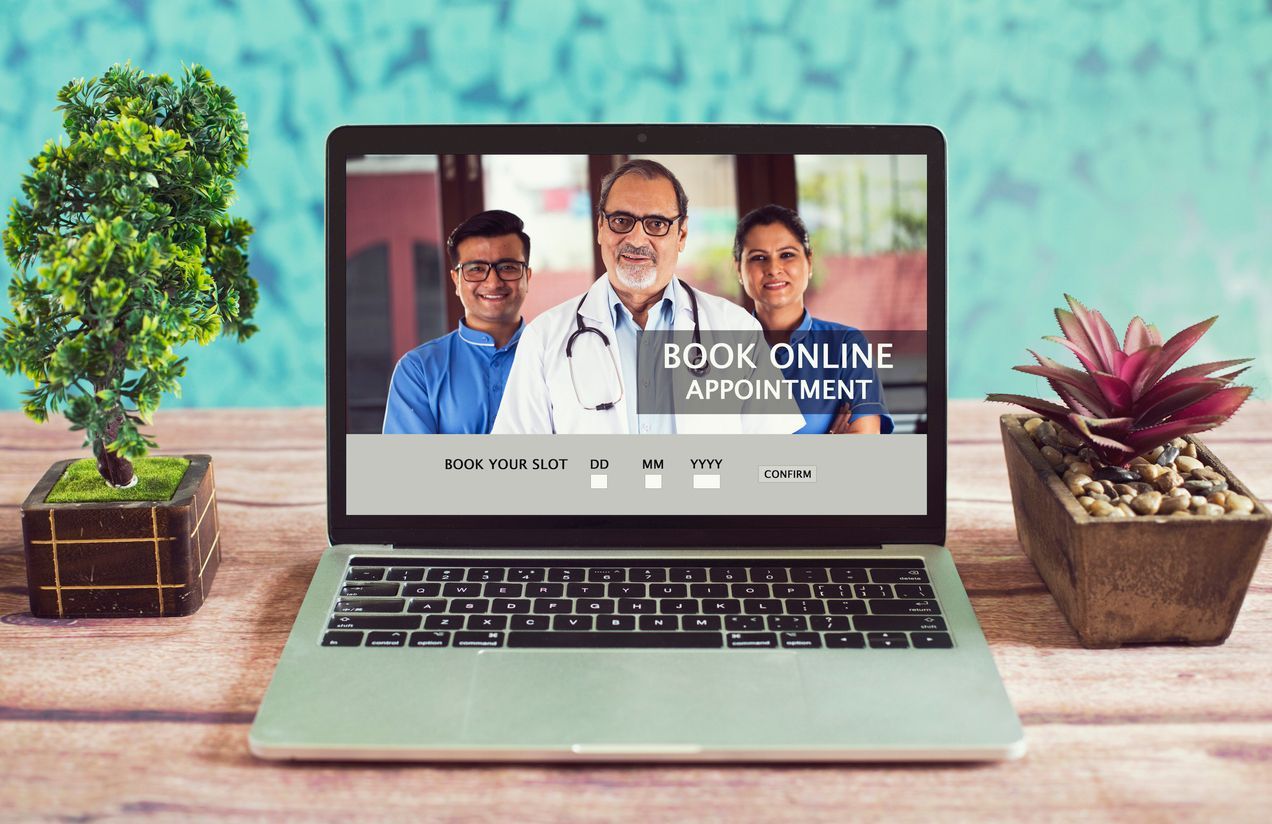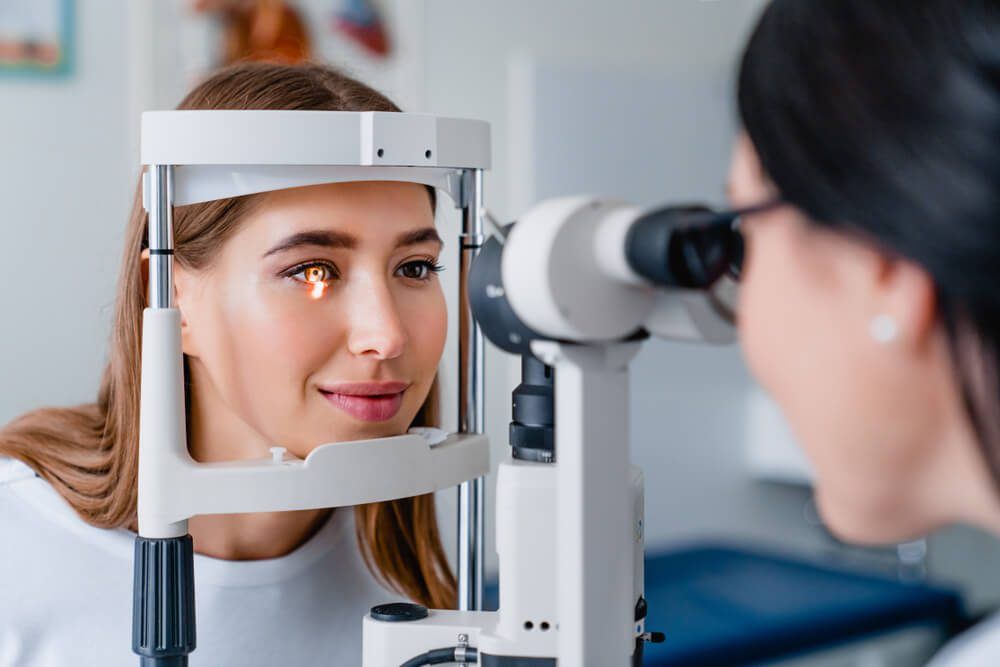Plastic Surgery SEO: Optimizing Your Online Presence for Cosmetic and Plastic Surgery
In the world of plastic surgery , establishing an online presence is vital for plastic surgeons seeking to reach prospective patients and expand their practices. Enter Search Engine Optimization, the secret sauce behind ensuring that plastic surgery practices stand out amidst the vast sea of online content.
But what exactly is SEO for plastic surgeons, and how does it propel their visibility in the digital realm? And how does SEO generate PLASTIC surgery patient leads? Let's embark on a journey to unravel the mysteries and uncover the unique nuances of SEO tailored specifically for plastic surgery practices.
What is Plastic Surgery SEO?
Simply put, plastic surgery SEO refers to the process of optimizing a plastic surgeon's website and online presence to rank higher in search engine results pages (SERPs) for relevant keywords related to plastic surgery procedures and services.
Key Components of Plastic Surgery SEO
Plastic surgery SEO encompasses a range of strategies and techniques aimed at improving your cosmetic surgery practice online visibility and attracting qualified leads. Some key components of plastic surgery SEO include:
- Keyword Research: Identifying and targeting relevant keywords that potential patients are likely to use when searching for plastic and cosmetic surgery services. This includes keywords related to specific procedures, geographic locations, and patient concerns.
- On-Page Optimization:
Optimizing the content and structure of a plastic surgeon's website to make it more attractive to search engines. This includes optimizing meta tags, headers, and content for relevant keywords, as well as ensuring that the site is mobile-friendly and user-friendly.
- Local SEO: Optimizing a plastic surgeon's online presence to appear prominently in local search results. This involves claiming and optimizing Google My Business listings, as well as optimizing online directories and local citations.
- Content Marketing: Creating high-quality, informative content that addresses common patient concerns, educates potential patients about plastic surgery procedures, and showcases the surgeon's expertise and experience.
- Link Building:
Acquiring high-quality backlinks from reputable sources to improve a plastic surgeon's website authority and credibility in the eyes of search engines.
- Technical SEO: Optimizing the technical aspects of a plastic surgeon's website to improve its performance and user experience. This includes optimizing site speed, implementing schema markup, and ensuring proper website architecture.
SEO ROI for Plastic Surgeons
By investing in plastic surgery SEO, plastic surgeons can:
- Increase visibility:
By optimizing their website and online presence for relevant keywords, plastic surgeons can improve their visibility in search engine results pages and attract more qualified leads.
- Build trust and credibility: A well-optimized website that ranks high in search engine results instills trust and credibility in potential patients, increasing the likelihood that they will choose a plastic surgeon for their procedure.
- Stay ahead of the competition: In today's competitive market, plastic surgery SEO is essential for staying ahead of the competition and attracting patients away from other practices.
Let’s Explore these elements in detail.
Keyword Research for Plastic Surgeons
Keyword research is like peering into the minds of your potential patients. It's your window into their needs, concerns, and desires as they navigate the vast world of plastic surgery online. By delving into the phrases they use to search for services like yours, you're not just optimizing your website – you're connecting on a deeper level. It's about speaking their language and showing up exactly when they need you most.
Tools and Techniques for Effective Keyword Research
There are several tools and techniques available to help plastic surgeons conduct effective keyword research:
- Google Keyword Planner: This free tool allows you to discover new keywords, analyze search volume trends, and estimate the competitiveness of keywords.
- SEMrush: SEMrush provides comprehensive keyword research capabilities, including keyword suggestions, search volume data, and competitor analysis.
- Ahrefs: Ahrefs offers powerful keyword research features, including keyword difficulty scores, SERP analysis, and keyword ideas based on competitor analysis.
When conducting keyword research, consider the following factors:
- Search Volume: Identify keywords with sufficient search volume to attract meaningful traffic to your website. Search volume is defined as the average number of searches for a particular keyword per month. For example, a keyword with a search volume of 1000 has on average 1000 searches for it per month.
- Relevance: Choose keywords that are directly related to your plastic surgery services and target audience.
- Competition: Evaluate the competitiveness of keywords to determine your ability to rank for them effectively. Tools like SEMrush offer invaluable details about the competitive landscape of the keywords that you are attempting to rank for and the likelihood of your site getting a top spot in the search engines.
Long-Tail Keywords for Plastic Surgeons
Long-tail keywords are specific, highly targeted phrases that typically consist of three or more words. While they may have lower search volume compared to broader keywords, long-tail keywords are often less competitive and can attract more qualified leads. Here are some examples of long-tail keywords for plastic surgeons:
- "Best rhinoplasty surgeon"
- "Affordable breast augmentation surgery"
- "Experienced facelift specialist"
- "Reconstructive surgery for facial scars"
- "Cosmetic surgery for post-pregnancy body"
By incorporating long-tail keywords into your SEO strategy, you can capture the attention of potential patients who are actively searching for specific plastic surgery services and information. Do this by adding these keywords to specific service pages or creating blog content around keywords that are more informational and educational in intent.
For example, a blog on “reconstructive surgery for facial scars” might go into the types of surgical procedures available for facial scarring, the details of each procedure, alternative options, surgery aftercare and other concerns patients likely have.
L.ocal Keywords for Plastic and Cosmetic Surgeons
Local keywords are phrases that include geographic modifiers, such as city names, neighborhoods, or regions. These keywords help plastic surgeons target patients in specific geographic areas and improve their visibility in local search results. Here are some examples of local keywords for plastic surgeons:
- "Top plastic surgeon in [city]"
- "Best plastic surgery clinic near [neighborhood]"
- "Board-certified plastic surgeon in [region]"
- "Plastic surgery services in [city]"
- "Cosmetic surgery center [city]"
By targeting local keywords, plastic surgeons can attract patients who are actively seeking plastic surgery services in their area. Optimizing your website and content for local keywords can help you rank higher in local search results and attract more qualified leads from your target geographic location.
On-Page SEO for Plastic Surgeons
On-page SEO is your opportunity to fine-tune your website content to align with the keywords and phrases you've discovered through your keyword research. It's not just about sprinkling keywords everywhere; it's about strategically integrating them into your content to enhance its relevance and visibility.
- Optimize Page Titles and Meta Descriptions: Craft compelling page titles and meta descriptions that accurately reflect the content of each page while incorporating your target keywords. These elements appear in search engine results and can influence click-through rates.
- Use Headers and Subheadings: Structure your content using headers (H1, H2, H3, etc.) to break up text and make it more readable for both users and search engines. Incorporate relevant keywords naturally into your headers to signal the topic of each section.
- Keyword Placement:
Incorporate your target keywords strategically throughout your content, including in the main body text, image alt tags, and anchor text for internal and external links. However, ensure that your content remains natural and readable, avoiding keyword stuffing.
- Optimize Images: Use descriptive file names and alt attributes for your images, incorporating relevant keywords where appropriate. Optimized images can contribute to overall page relevance and improve accessibility for users with visual impairments.
- Create Quality Content: Focus on creating high-quality, informative content that addresses the needs and concerns of your target audience. Leverage your keyword research to guide the topics you cover and the language you use, ensuring that your content resonates with potential patients.
By leveraging your keyword research in your on-page SEO efforts, you can create content that not only appeals to search engines but also provides value to your audience. Remember that the ultimate goal is to deliver a seamless user experience while increasing your visibility and attracting qualified leads to your plastic surgery practice.
Local SEO for Plastic Surgeons
As a plastic surgeon, your practice isn't just a business—it's a vital part of your local community. And when it comes to attracting patients from your area, local SEO is your best friend. Here's how you can make sure your practice shines bright in local search results while forging meaningful connections with those around you:
- Claim and Optimize Google My Business (GMB): Google My Business is a powerful tool for improving your visibility in local search results. Claim your GMB listing and ensure that all information, including your practice name, address, phone number, website URL, and business hours, is accurate and up to date.
- Choose the Right Categories: Select relevant categories for your practice on Google My Business to ensure that your listing appears for relevant search queries. Choose categories that accurately reflect the services you offer, such as "Plastic Surgeon" or "Cosmetic Surgery Clinic."
- Optimize Your GMB Profile:
Take advantage of all the features available on Google My Business to enhance your profile. Add high-quality photos of your practice, including the interior, exterior, and team members. Encourage satisfied patients to leave positive reviews, as reviews are a key ranking factor for local search.
- Provide Detailed Descriptions:
Write a detailed description of your practice that includes relevant keywords and emphasizes your areas of expertise and unique selling points. Use language that resonates with your local audience and highlights why they should choose your practice.
- Consistent NAP Citations: Ensure that your practice name, address, and phone number (NAP) are consistent across all online directories, listings, and citations. Inconsistent information can confuse both search engines and potential patients, leading to lower rankings and missed opportunities.
- Local Link Building: Build local backlinks from reputable sources such as local directories, chambers of commerce, and community organizations. These local citations can help improve your visibility in local search results and establish your practice as a trusted authority in your area.
- Monitor and Respond to Reviews: Regularly monitor the reviews left on your Google My Business listing and respond promptly to both positive and negative feedback. Engaging with reviews shows potential patients that you value their feedback and care about their experiences.
Content Marketing for Plastic Surgeons: Nurturing Relationships through Education and SEO
Content marketing isn't just about words on a screen—it's about forging connections and building trust. As a plastic surgeon, your expertise extends beyond the operating room, and content marketing is your platform to share that knowledge with the world while boosting your practice's visibility in search engine results. Let's explore how you can weave together education, empathy, and SEO to elevate your practice and connect with your audience on a deeper level:
- Educate Your Audience with Educational Insights: Content marketing allows you to go beyond the surface and dive deep into the intricacies of plastic surgery. Through articles, blog posts, and videos, you can offer invaluable insights into different procedures, recovery journeys, and the emotional transformations that come with them. By addressing common concerns and shedding light on the process, you empower your audience to make informed decisions while nurturing a sense of trust and understanding.
- Share Stories of Transformation for SEO Success: Behind every surgery is a story of transformation, and these stories can be powerful tools for both connecting with your audience and boosting your SEO. Share testimonials and success stories from patients whose lives have been changed by your expertise and care. Not only do these stories resonate with potential patients, but they also provide rich, user-generated content that search engines love. Infuse these narratives with relevant keywords and phrases to enhance your SEO performance while showcasing the heart and soul of your practice.
- Address Concerns with Compassion and SEO Savvy: Plastic surgery can be daunting, and patients often have a myriad of concerns and questions. Use your content to address these worries with empathy and expertise. Whether it's discussing recovery tips, cost considerations, or debunking common myths, approach each topic with sensitivity and insight. And don't forget to sprinkle in those carefully researched keywords to ensure your content reaches those who need it most.
- Highlight Your Journey and Expertise with a Personal Touch: Your journey as a plastic surgeon is unique, and sharing it can deepen the connection with your audience while boosting your SEO efforts. Share insights into your background, training, and passion for your craft. Let your personality shine through as you recount your experiences and achievements. By showcasing the person behind the profession, you not only attract patients seeking top-notch care but also demonstrate authenticity and authority to search engines.
- Engage and Connect for SEO and Community Building: Content marketing is a conversation, not a monologue. Encourage interaction and engagement with your audience by inviting them to share their thoughts, questions, and experiences. Respond to comments with warmth and sincerity, fostering a sense of community and belonging. This engagement not only signals to search engines that your content is valuable and relevant but also cultivates a loyal and supportive community around your practice.
By infusing your content marketing efforts with warmth, empathy, and SEO savvy, you can create a powerful platform for connecting with your audience, nurturing relationships, and boosting your practice's visibility in search engine results. Through education, engagement, and authenticity, you lay the foundation for lasting connections built on trust, compassion, and shared experiences.
Building Bridges: Link Building and On-Page SEO Synergy
In the realm of plastic surgery SEO, link building and on-page optimization aren't just separate strategies—they're two sides of the same coin, working in harmony to elevate your website's visibility and authority. Let’s take a look at how link building supplements and complements your on-page SEO efforts:
- Enhanced Authority: When reputable websites link back to your content, search engines perceive your website as a trusted authority in the field. This endorsement strengthens your overall website authority, making it more likely to rank higher in search engine results pages (SERPs). In essence, link building acts as a vote of confidence for your website's content, supplementing the credibility established through on-page optimization.
- Expanded Reach:
Link building extends the reach of your website beyond its own pages. Each backlink serves as a gateway, guiding users from other websites to yours. This influx of referral traffic not only exposes your content to a wider audience but also increases the likelihood of engagement and conversion. By strategically building links from relevant and authoritative sources, you amplify the impact of your on-page content and attract more qualified leads to your plastic surgery practice.
- Content Validation: Quality backlinks validate the relevance and value of your on-page content. When other websites link to your articles, blog posts, or service pages, they signal to search engines that your content is worthy of citation and reference. This validation reinforces the effectiveness of your on-page SEO efforts, signaling to search engines that your website is a credible source of information within the plastic surgery niche.
- Diverse Anchor Text: Anchor text—the clickable text of a hyperlink—plays a crucial role in both on-page SEO and link building. While optimizing anchor text for on-page SEO involves using relevant keywords to signal the topic of linked pages, link building allows for the acquisition of diverse anchor text variations. By securing backlinks with a variety of anchor text, you can strengthen the thematic relevance of your website and improve its ranking potential for targeted keywords.
How to Do Link Building:
- Prioritize Quality: Quality trumps quantity when it comes to link building. Focus on securing links from reputable and relevant websites within the healthcare industry. These authoritative connections carry more weight with search engines and reflect positively on your practice.
- Harness Social Media: Social media platforms aren't just for personal use; they're also valuable tools for link building. Share engaging content from your website on platforms like Facebook, Instagram, and LinkedIn. Your posts may capture the attention of other websites eager to share your valuable insights.
- Explore Guest Blogging: Consider contributing guest posts to reputable healthcare blogs or online publications. By showcasing your expertise in the field, you not only provide valuable insights to readers but also earn backlinks to your website, boosting its authority and visibility.
- Nurture Local Relationships:
As a plastic surgeon, your practice is deeply rooted in your local community. Strengthen your ties with local businesses, organizations, and charities. Collaborations and sponsorships can lead to valuable links from community-oriented websites.
- Leverage Professional Associations:
If you're affiliated with professional medical associations or organizations, ensure your practice is listed in their online directories. These directories often include backlinks to members' websites, enhancing your practice's credibility and online visibility.
- Seek Referrals: Don't hesitate to reach out to colleagues, satisfied patients, and industry contacts for referrals. Whether through website mentions, social media shoutouts, or newsletter recommendations, every referral can contribute to your link-building efforts.
While on-page optimization lays the foundation for content relevance and user experience, link building serves as the bridge that connects your website to the wider digital landscape, amplifying its authority, reach, and credibility. By integrating both strategies seamlessly, you can maximize your website's visibility, attract more qualified leads, and establish your practice as a trusted authority in the field of plastic surgery.
Navigating the Technical Terrain: Technical SEO for Plastic Surgeons
So, we have dived into the world of plastic surgery SEO, and now we are about to explore technical optimization. It sounds daunting, right? But don't worry, it's not as scary as it seems. Think of technical SEO as the engine under the hood—it's what keeps everything running smoothly. From making sure your pages load fast to organizing your site in a user-friendly way, these technical tweaks are crucial for getting noticed online.
So, let's break it down together, with some real-life examples and handy resources to guide you along the way. You've got this!"
- Schema Markup for Enhanced Visibility:
Schema markup is like adding rich snippets to your website's content, providing search engines with structured data to better understand and display your information. For instance, let's say you're a plastic surgeon offering various procedures like rhinoplasty, facelifts, and breast augmentation. By implementing schema markup with appropriate tags for medical procedures, your search results may feature enhanced snippets displaying specific procedures and their associated ratings or reviews.
Resource: Schema.org provides comprehensive documentation and examples of schema markup for various types of content. - Optimizing Page Speed:
Page speed optimization is crucial for providing users with a fast and seamless browsing experience. Consider a scenario where a potential patient searches for "best plastic surgeon in [your city]." If your website takes too long to load, they may bounce back to the search results and choose a competitor instead. By optimizing your website's page speed, you can ensure that users have a positive experience and are more likely to engage with your content.
Resource: Use tools like Google PageSpeed Insights or GTmetrix to analyze and improve your website's performance. - Ensuring Indexability:
Ensuring that search engines can properly crawl and index your website is essential for effective SEO. Consider the example of a plastic surgery practice with a comprehensive website covering various procedures, before-and-after galleries, and patient testimonials. By utilizing XML sitemaps and optimizing your robots.txt file, you can guide search engine crawlers to prioritize indexing important pages like your services, testimonials, and contact information.
Resource: Explore Google's official documentation on robots.txt specifications and best practices. - Optimizing Site Architecture:
An organized site architecture not only improves user navigation but also facilitates search engine crawlers' understanding of your website's content hierarchy. Imagine your website as a multi-level building, with the homepage as the lobby and individual procedure pages as different floors. By structuring your website with clear navigation menus and internal links, you make it easier for both users and search engines to navigate and discover relevant content.
Resource: Dive into Google's recommendations for site structure to optimize your website's architecture. - Mobile-Friendly Design:
With the majority of internet users accessing websites on mobile devices, ensuring a mobile-friendly design is paramount. Consider a scenario where a prospective patient searches for "plastic surgery near me" on their smartphone. If your website isn't optimized for mobile, they may struggle to navigate or read the content, leading to a poor user experience and potentially lost leads. By adopting responsive design principles, you can ensure that your website looks and functions seamlessly across all devices.
Resource: Use Google's Mobile-Friendly Test to evaluate and improve your website's mobile responsiveness.
Congratulations, you've made it through our whirlwind tour of plastic surgery SEO! We've covered everything from keyword research to technical optimizations, all geared towards helping your practice shine online. Remember, SEO isn't just about climbing search rankings—it's about connecting with your audience, building trust, and ultimately transforming clicks into consultations.
So take what you've learned, roll up your sleeves, and dive into the world of SEO with confidence. Your future patients are out there, just waiting to discover all the incredible services your practice has to offer. Happy optimizing!
Interested in Working with SearchX?
SEO Pulse Blog
New York Office
524 W Broadway,
New York, NY, USA
10012
Miami Office
1501 Biscayne Blvd, Ste. 501, Miami, FL, USA
33132
Copyright SearchX 2024














